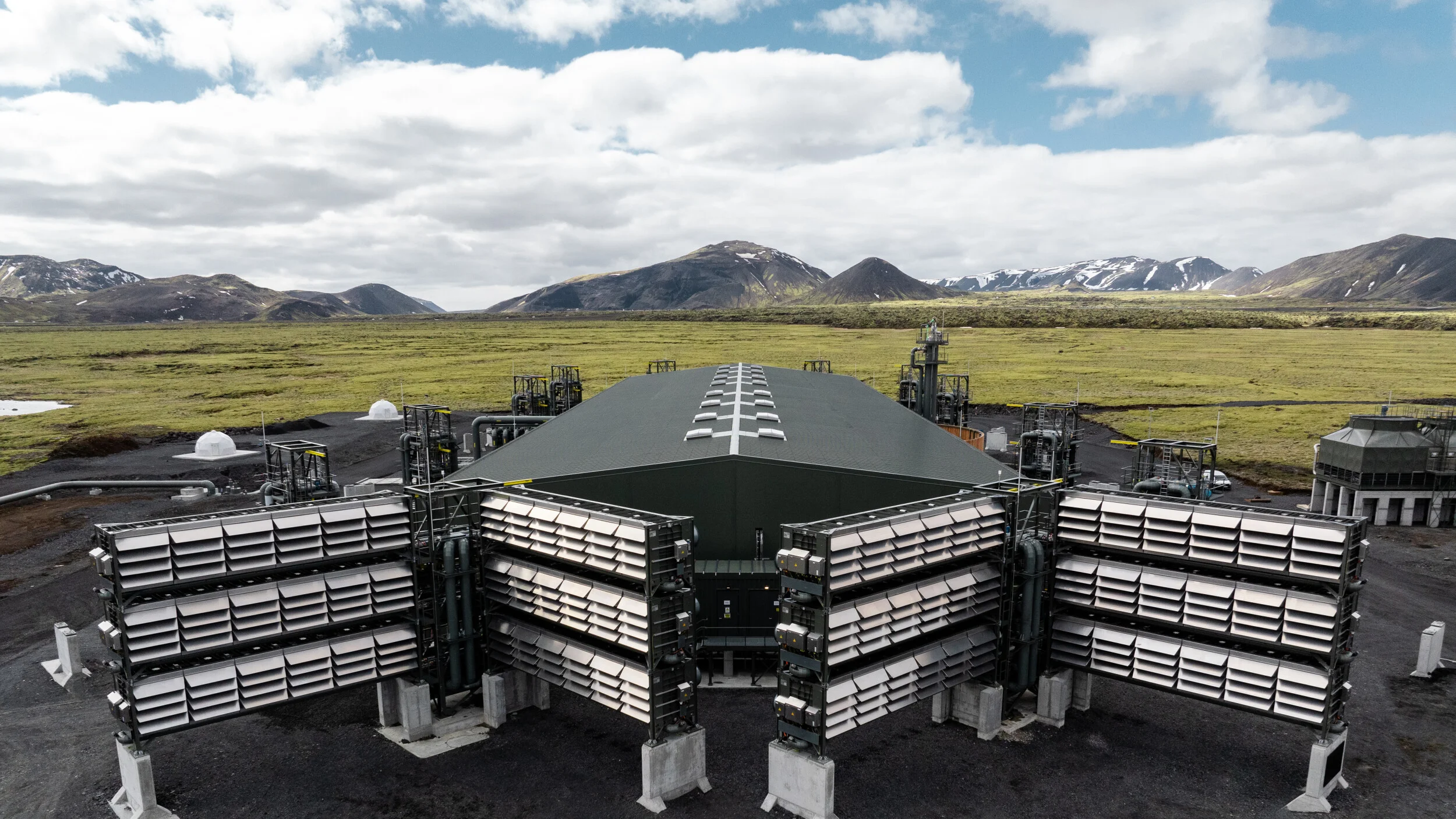 Iceland and Canada lie over 4,500 kilometres apart on a world map, yet news that a pioneering carbon removal project near Reykjavik is falling well short of expectations a year after its launch has hit home with some North American sector skeptics closely watching the climate technology’s progress. Switzerland’s Climeworks, which has raised US $800 million, opened the world’s largest operational direct air capture (DAC) plant, known as Mammoth. But the facility, which uses what look like walls of giant fans to capture CO2 directly from the air and then pumps it deep underground, has not measured up to expectations. …The slow start has sparked discussion in clean energy circles over the wisdom. …Prime Minister Mark Carney said Canada could be a leader in carbon capture and storage as part of a controversial effort to decarbonize oil and gas, including extending tax credits and setting carbon dioxide removal targets.
Iceland and Canada lie over 4,500 kilometres apart on a world map, yet news that a pioneering carbon removal project near Reykjavik is falling well short of expectations a year after its launch has hit home with some North American sector skeptics closely watching the climate technology’s progress. Switzerland’s Climeworks, which has raised US $800 million, opened the world’s largest operational direct air capture (DAC) plant, known as Mammoth. But the facility, which uses what look like walls of giant fans to capture CO2 directly from the air and then pumps it deep underground, has not measured up to expectations. …The slow start has sparked discussion in clean energy circles over the wisdom. …Prime Minister Mark Carney said Canada could be a leader in carbon capture and storage as part of a controversial effort to decarbonize oil and gas, including extending tax credits and setting carbon dioxide removal targets.



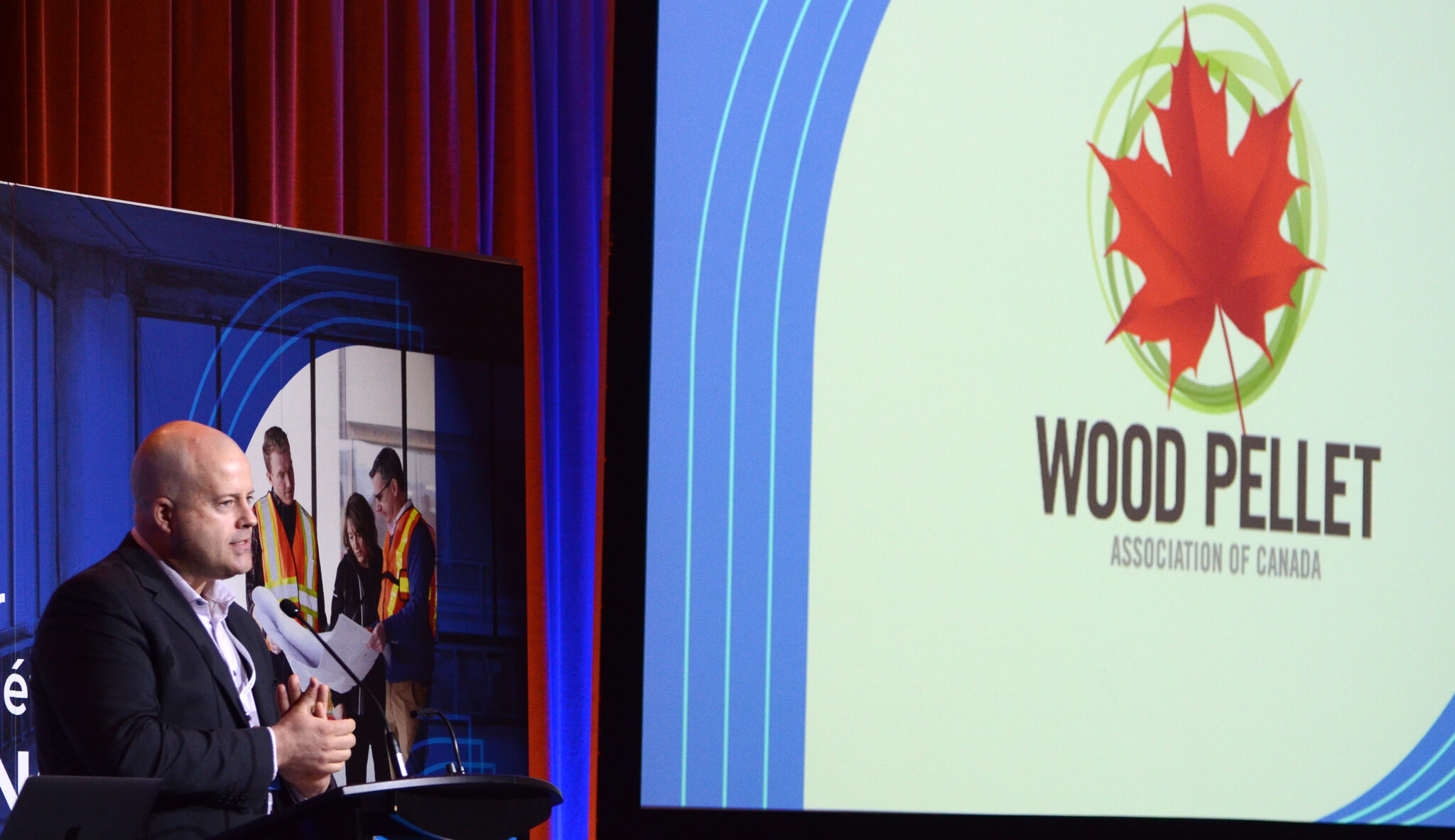
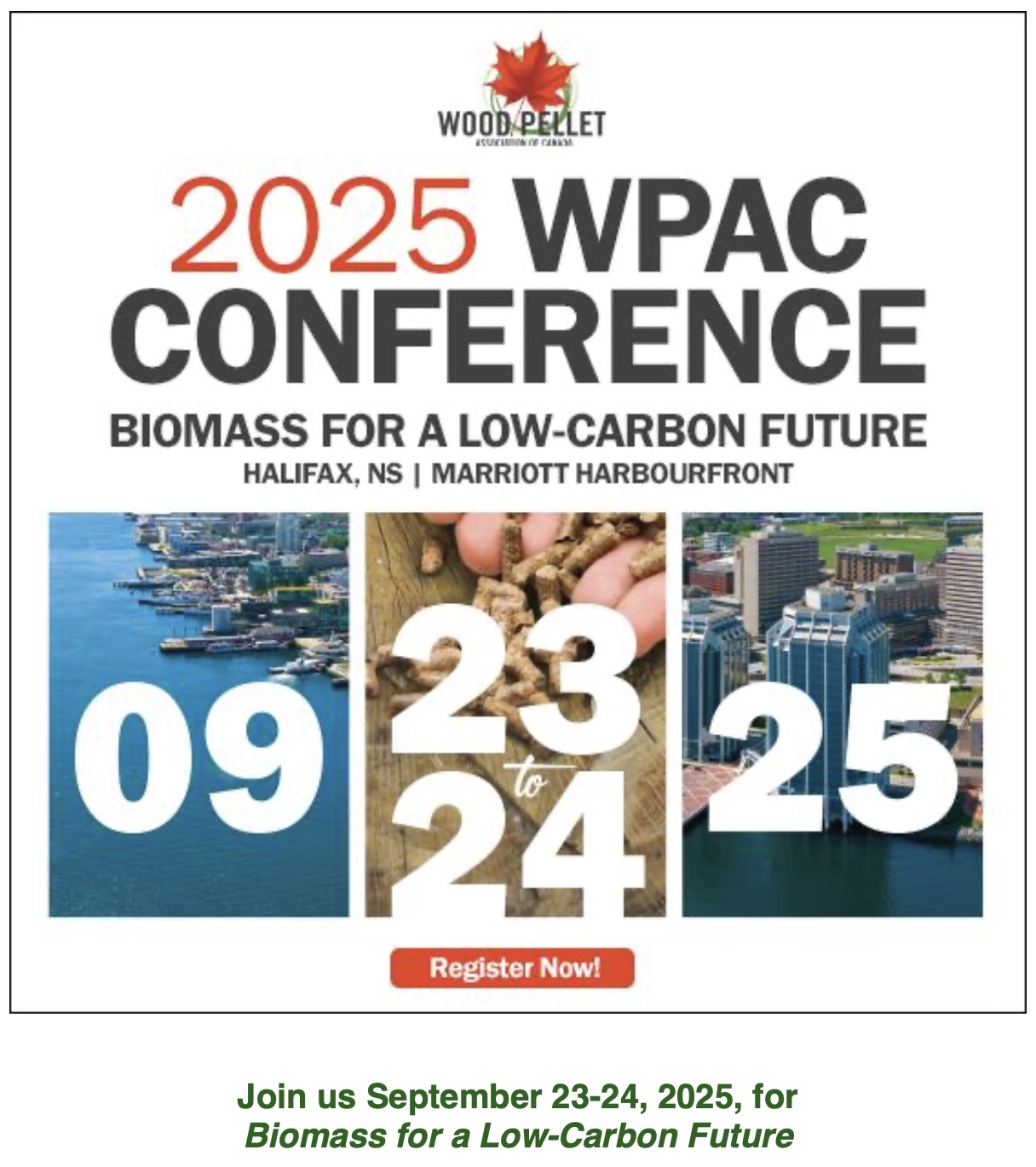 Join us in Halifax, Nova Scotia, September 23-24, 2025 for Biomass for a Low-Carbon Future. As the world moves toward a low-carbon future, biomass and wood pellets play a key role in ensuring Canada has renewable and responsible energy. Join us to explore the numerous opportunities biomass presents, from reducing greenhouse gas emissions to supporting economic growth in the transition to a net-zero economy. Who Should Attend? Anyone interested in advancing electrification, including pellet producers, customers, First Nations and government officials, policymakers, regulators at every level, researchers, safety specialists, logistics personnel and equipment manufacturers.
Join us in Halifax, Nova Scotia, September 23-24, 2025 for Biomass for a Low-Carbon Future. As the world moves toward a low-carbon future, biomass and wood pellets play a key role in ensuring Canada has renewable and responsible energy. Join us to explore the numerous opportunities biomass presents, from reducing greenhouse gas emissions to supporting economic growth in the transition to a net-zero economy. Who Should Attend? Anyone interested in advancing electrification, including pellet producers, customers, First Nations and government officials, policymakers, regulators at every level, researchers, safety specialists, logistics personnel and equipment manufacturers.
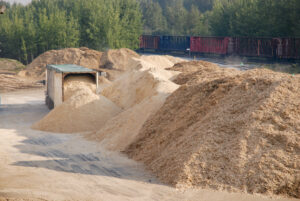 Earlier this year, Burnaby’s Svante Technologies made inroads in Alberta. The move eastward is partially powered by a newly formed partnership with Mercer International. The Canadian cleantech’s carbon capture project is targeting biogenic CO2 emissions from Mercer’s Peace River pulp mill. …One of the strategies the firm intends to adopt in Canada is carbon sequestration. Within Alberta, carbon sequestration is a sensible tactic to apply, according to Mercer International’s chief executive officer, Juan Carlos Bueno. “The reason why we’re doing it there is because the mill is located in Alberta, where you have geological formations that are suitable for sequestering CO2,” Bueno informed Andrew Snook of Pulp & Paper Canada. …Finalizing investment in the project, however, is no small consideration. There is a price tag north of $500 million and moving forward would require extensive support from both the Province of Alberta and Government of Canada.
Earlier this year, Burnaby’s Svante Technologies made inroads in Alberta. The move eastward is partially powered by a newly formed partnership with Mercer International. The Canadian cleantech’s carbon capture project is targeting biogenic CO2 emissions from Mercer’s Peace River pulp mill. …One of the strategies the firm intends to adopt in Canada is carbon sequestration. Within Alberta, carbon sequestration is a sensible tactic to apply, according to Mercer International’s chief executive officer, Juan Carlos Bueno. “The reason why we’re doing it there is because the mill is located in Alberta, where you have geological formations that are suitable for sequestering CO2,” Bueno informed Andrew Snook of Pulp & Paper Canada. …Finalizing investment in the project, however, is no small consideration. There is a price tag north of $500 million and moving forward would require extensive support from both the Province of Alberta and Government of Canada.

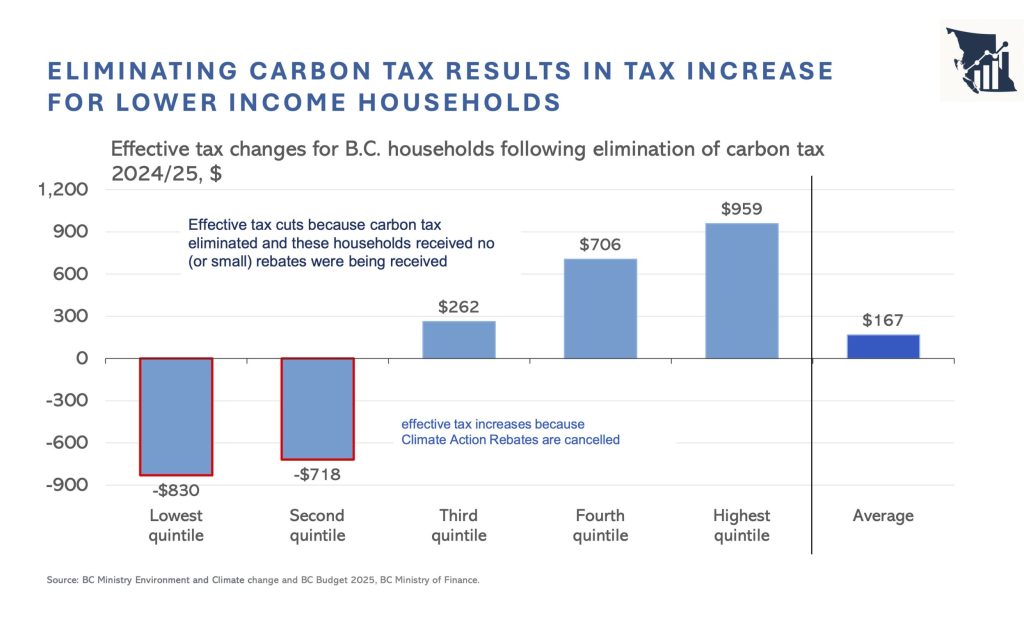

 Climate change has put Western Canada’s glaciers on track for devastating loss over the coming decades, with the southern half of BC expected to lose nearly 75% of the alpine ice — even if warming stops today, a new study has found. The planet has so far warmed an average of about 1.2 degrees Celsius above pre-industrial temperatures. If that increase climbs to 1.5 degrees C, 81% of Western Canadian and US glacier mass would melt, according to the study published Thursday in the journal Science. …Harry Zekollari, the study’s lead author and a glaciologist at Belgium’s Vrije Universiteit Brussel, said the international research team used eight glacier computer models to analyze the potential long-term evolution of the year-round ice. The results painted a dire picture for the world’s glaciers, as the planet has already locked in enough warming to melt 40% of the Earth’s year-round ice by the end of the century.
Climate change has put Western Canada’s glaciers on track for devastating loss over the coming decades, with the southern half of BC expected to lose nearly 75% of the alpine ice — even if warming stops today, a new study has found. The planet has so far warmed an average of about 1.2 degrees Celsius above pre-industrial temperatures. If that increase climbs to 1.5 degrees C, 81% of Western Canadian and US glacier mass would melt, according to the study published Thursday in the journal Science. …Harry Zekollari, the study’s lead author and a glaciologist at Belgium’s Vrije Universiteit Brussel, said the international research team used eight glacier computer models to analyze the potential long-term evolution of the year-round ice. The results painted a dire picture for the world’s glaciers, as the planet has already locked in enough warming to melt 40% of the Earth’s year-round ice by the end of the century. Boeing Canada says it’s investing millions of dollars into business ventures in B.C. and Quebec with the eventual goal of producing close to 200 million litres of sustainable jet fuel every year. The announcement, made Wednesday, includes nearly $17.5 million split between two projects looking to turn wood waste and carbon captured from industrial smokestacks into sustainable aviation fuel. The fuel, known in industry as SAF, has the potential to reduce carbon emissions by up to 80 per cent over its lifecycle and “offers the fastest route to decarbonization in the aviation sector,” according to Boeing. Boeing’s latest investment will direct $10 million to Project Avance, a joint venture between Bioenergie AECN and Alder Renewables in Port Cartier, Que. The project aims to convert wood residue from sawmills into low-carbon bio-crude that can later be converted into almost 38 million litres of unblended jet fuel every year.
Boeing Canada says it’s investing millions of dollars into business ventures in B.C. and Quebec with the eventual goal of producing close to 200 million litres of sustainable jet fuel every year. The announcement, made Wednesday, includes nearly $17.5 million split between two projects looking to turn wood waste and carbon captured from industrial smokestacks into sustainable aviation fuel. The fuel, known in industry as SAF, has the potential to reduce carbon emissions by up to 80 per cent over its lifecycle and “offers the fastest route to decarbonization in the aviation sector,” according to Boeing. Boeing’s latest investment will direct $10 million to Project Avance, a joint venture between Bioenergie AECN and Alder Renewables in Port Cartier, Que. The project aims to convert wood residue from sawmills into low-carbon bio-crude that can later be converted into almost 38 million litres of unblended jet fuel every year.
 A love of the outdoors and a deep desire to make a meaningful impact on communities affected by climate change keeps Greg Verkaik going back to Western Canada. The PhD student studies peatlands and their role in wildfires. Climate change isn’t an abstract concept in his research, it’s something he’s been seeing and experiencing in the landscapes he’s visited since 2018 as part of this work. The 2025 wildfire season is already shaping up to be another intense year for Canada. Early signs point to another active and dangerous season, particularly in Western Canada. As peatlands dry and fire seasons lengthen, the risk of deep-burning, smouldering fires – the kind that can persist underground and reignite months later, continues to grow. This only strengthens Verkaik’s commitment to his research, which aims to better understand how peatlands influence wildfire behaviour and how they might be managed to reduce risk.
A love of the outdoors and a deep desire to make a meaningful impact on communities affected by climate change keeps Greg Verkaik going back to Western Canada. The PhD student studies peatlands and their role in wildfires. Climate change isn’t an abstract concept in his research, it’s something he’s been seeing and experiencing in the landscapes he’s visited since 2018 as part of this work. The 2025 wildfire season is already shaping up to be another intense year for Canada. Early signs point to another active and dangerous season, particularly in Western Canada. As peatlands dry and fire seasons lengthen, the risk of deep-burning, smouldering fires – the kind that can persist underground and reignite months later, continues to grow. This only strengthens Verkaik’s commitment to his research, which aims to better understand how peatlands influence wildfire behaviour and how they might be managed to reduce risk.


 WASHINGTON — On behalf of the American Wood Council (AWC) and the American Forest & Paper Association (AF&PA), AF&PA Vice President of Public Policy Paul Noe gave oral testimony before the House Committee on Energy and Commerce, Subcommittee on Environment in their hearing titled, “Short-Circuiting Progress: How the Clean Air Act Impacts Building Necessary Infrastructure and Onshoring American Innovation.” In his testimony, Noe applauded legislation that would allow the paper and wood products industry to make capital investments to modernize their manufacturing facilities. …discussion was heard by the committee on two bills that would make critical revisions to the National Ambient Air Quality Standard (NAAQS) setting and implementation process that would reduce the type of permit gridlock created when the particulate matter NAAQS was significantly lowered by the previous administration. “We strongly support Congressmen Rick Allen and Buddy Carter in their efforts to address the impacts of air permitting issues on U.S. manufacturing,” said Noe.
WASHINGTON — On behalf of the American Wood Council (AWC) and the American Forest & Paper Association (AF&PA), AF&PA Vice President of Public Policy Paul Noe gave oral testimony before the House Committee on Energy and Commerce, Subcommittee on Environment in their hearing titled, “Short-Circuiting Progress: How the Clean Air Act Impacts Building Necessary Infrastructure and Onshoring American Innovation.” In his testimony, Noe applauded legislation that would allow the paper and wood products industry to make capital investments to modernize their manufacturing facilities. …discussion was heard by the committee on two bills that would make critical revisions to the National Ambient Air Quality Standard (NAAQS) setting and implementation process that would reduce the type of permit gridlock created when the particulate matter NAAQS was significantly lowered by the previous administration. “We strongly support Congressmen Rick Allen and Buddy Carter in their efforts to address the impacts of air permitting issues on U.S. manufacturing,” said Noe. 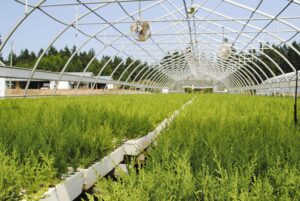 Replanting forests can help cool the planet even more than some scientists once believed, especially in the tropics. But even if every tree lost since the mid-19th century is replanted, the total effect won’t cancel out human-generated warming. …In a new study
Replanting forests can help cool the planet even more than some scientists once believed, especially in the tropics. But even if every tree lost since the mid-19th century is replanted, the total effect won’t cancel out human-generated warming. …In a new study 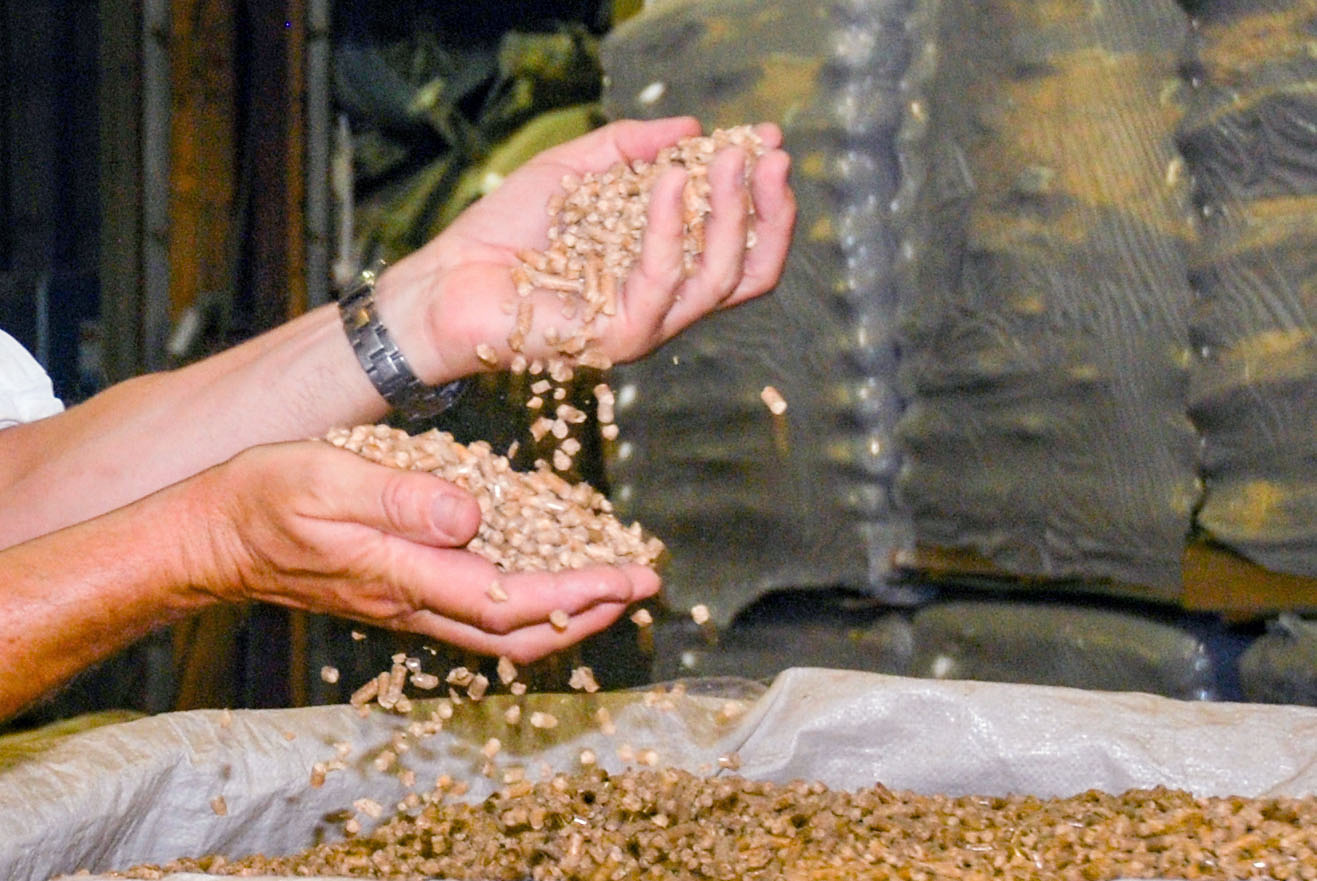 In an energy conversation dominated by buzzwords and breakthroughs, it’s easy to overlook the quiet, proven solutions that are already delivering results. Exhibit A: wood pellets. These compact cylinders aren’t flashy or trend on social media. For the uninitiated, they are carriers of renewable carbon and energy, sourced from responsibly managed forests; a real, scalable, domestic resource that delivers energy security, climate value, and rural jobs while sustaining and growing forests. Wood pellets are emerging as one of the smartest plays in America’s energy and climate portfolio. …Every year, America’s 360 million acres of privately-owned forests grow more wood than we harvest. …Responsible forest management, the kind that thins out fuel for wildfires, not only keeps forests healthy but also supplies feedstock for wood pellets. …This is climate action with a hard hat, not a hashtag. …Wood pellets are real, scalable, renewable and a true American resource.
In an energy conversation dominated by buzzwords and breakthroughs, it’s easy to overlook the quiet, proven solutions that are already delivering results. Exhibit A: wood pellets. These compact cylinders aren’t flashy or trend on social media. For the uninitiated, they are carriers of renewable carbon and energy, sourced from responsibly managed forests; a real, scalable, domestic resource that delivers energy security, climate value, and rural jobs while sustaining and growing forests. Wood pellets are emerging as one of the smartest plays in America’s energy and climate portfolio. …Every year, America’s 360 million acres of privately-owned forests grow more wood than we harvest. …Responsible forest management, the kind that thins out fuel for wildfires, not only keeps forests healthy but also supplies feedstock for wood pellets. …This is climate action with a hard hat, not a hashtag. …Wood pellets are real, scalable, renewable and a true American resource.
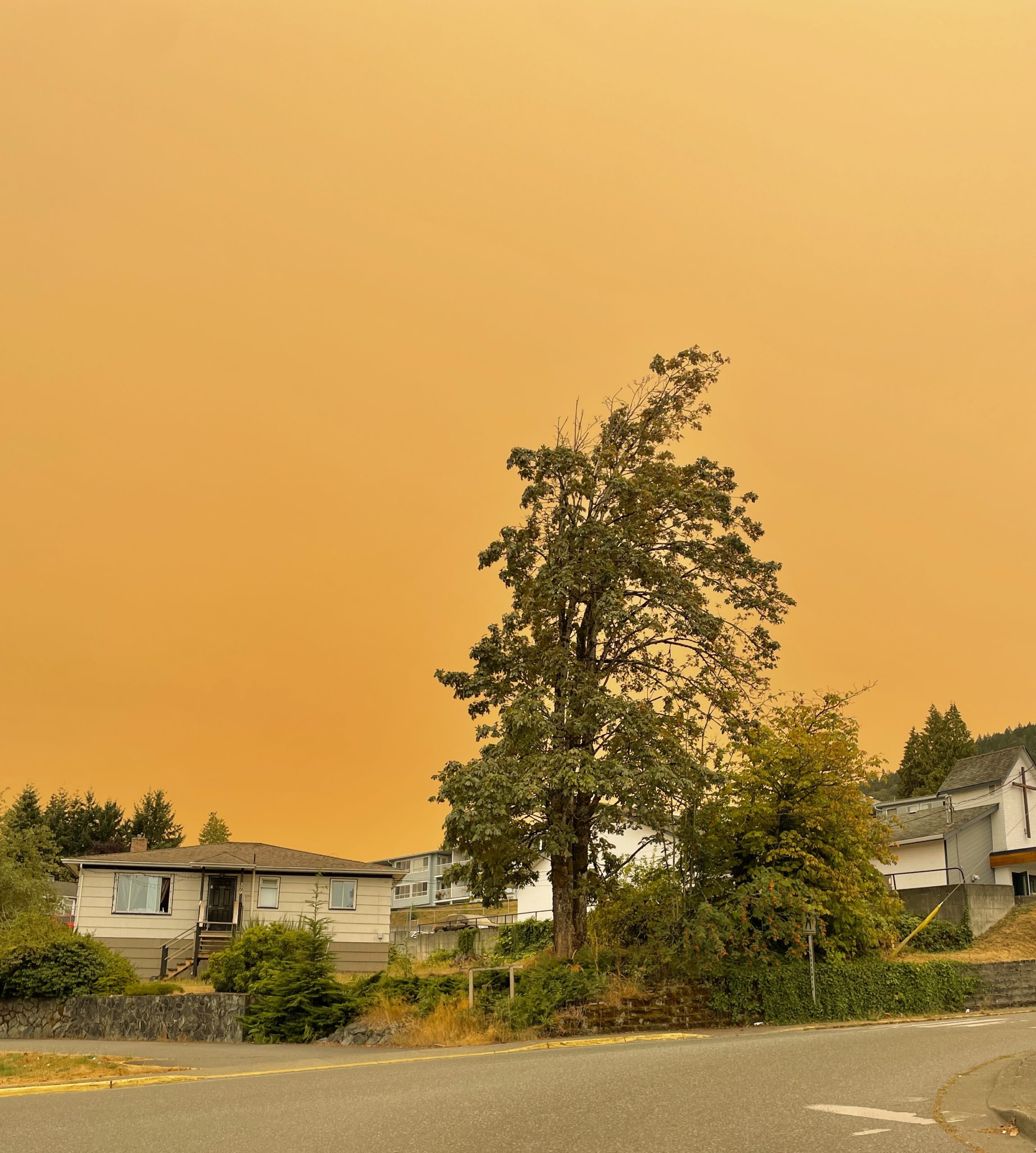 Even if you live far from the boreal forests in Canada and Siberia, you’ve likely noticed an increase in smoke from their forest fires. During major blazes in 2023, the smoke oranged the New York sky and drifted as far south as New Orleans. These blazes have surged in the last decade due to the effects of climate change — warmer summers, less snow cover in the spring, and the loss of sea ice. Experts expect that trend to continue. Yet recent climate change projection models have not accounted for the increase. For instance, the widely used sixth Coupled Model Intercomparison Project, or CMIP6, released in the late 2010s, kept these fires constant at a relatively low severity. A new University of Washington-led study projects that in the next 35 years these increasing boreal fires will actually slow warming by 12% globally and 38% in the Arctic.
Even if you live far from the boreal forests in Canada and Siberia, you’ve likely noticed an increase in smoke from their forest fires. During major blazes in 2023, the smoke oranged the New York sky and drifted as far south as New Orleans. These blazes have surged in the last decade due to the effects of climate change — warmer summers, less snow cover in the spring, and the loss of sea ice. Experts expect that trend to continue. Yet recent climate change projection models have not accounted for the increase. For instance, the widely used sixth Coupled Model Intercomparison Project, or CMIP6, released in the late 2010s, kept these fires constant at a relatively low severity. A new University of Washington-led study projects that in the next 35 years these increasing boreal fires will actually slow warming by 12% globally and 38% in the Arctic.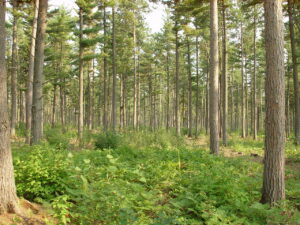 Earlier this week, Clean Air Task Force (CATF), alongside a team of leading U.S. forest carbon scientists, published a deep dive into the rules that govern a wide range of forest carbon credit certifications relevant to North America. The assessment examines rules of the road for quantifying carbon credits and identifies what works well, where there are weaknesses, and opportunities for improvements to ensure that forest carbon credits achieve their promised climate benefits… CATF’s assessment scored some elements of California’s current forest protocol that lays out the requirements for carbon credit certification as robust, such as the 100-year monitoring period for stored carbon in forests, and others as weak, like the risk assessment procedure. While high-quality credits are possible under the current protocol, the bar needs to be raised to guarantee that credits are delivering on their promise.
Earlier this week, Clean Air Task Force (CATF), alongside a team of leading U.S. forest carbon scientists, published a deep dive into the rules that govern a wide range of forest carbon credit certifications relevant to North America. The assessment examines rules of the road for quantifying carbon credits and identifies what works well, where there are weaknesses, and opportunities for improvements to ensure that forest carbon credits achieve their promised climate benefits… CATF’s assessment scored some elements of California’s current forest protocol that lays out the requirements for carbon credit certification as robust, such as the 100-year monitoring period for stored carbon in forests, and others as weak, like the risk assessment procedure. While high-quality credits are possible under the current protocol, the bar needs to be raised to guarantee that credits are delivering on their promise.
 TEXAS — A plan to open a bioenergy plant in Newton County has reached a new milestone with a landmark deal to supply wood for the site in Bon Wier. Mike Lout with KJAS, reports Nick Andrews, President and CEO of the Scottsdale, Arizona-based USA Bioenergy, announced on Tuesday that his company has
TEXAS — A plan to open a bioenergy plant in Newton County has reached a new milestone with a landmark deal to supply wood for the site in Bon Wier. Mike Lout with KJAS, reports Nick Andrews, President and CEO of the Scottsdale, Arizona-based USA Bioenergy, announced on Tuesday that his company has 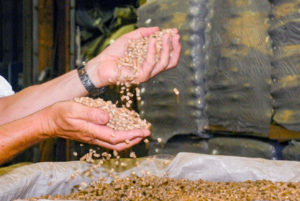 GEORGETOWN, South Carolina — Over 650 Georgetown residents have signed a petition opposing a proposed biomass plant at the site of the International Paper mill that closed last year. The group Citizens for Georgetown says it is working to revitalize the town’s waterfront through “thoughtful redevelopment.” 653 people are opposing the plant that would generate energy for Santee Cooper from tree waste. …Citizens for Georgetown Chairman Tom Swatzel. “Now, we face a critical choice: leave decades of pollution in the land and water, continue with heavy industry OR clean up the site and reimagine these properties into a vibrant, sustainable future that benefits all residents.” …State Sen. Stephen Goldfinch expressed cautious optimism over the proposed plant, saying that it could involve an investment of nearly $4 billion and create new jobs.
GEORGETOWN, South Carolina — Over 650 Georgetown residents have signed a petition opposing a proposed biomass plant at the site of the International Paper mill that closed last year. The group Citizens for Georgetown says it is working to revitalize the town’s waterfront through “thoughtful redevelopment.” 653 people are opposing the plant that would generate energy for Santee Cooper from tree waste. …Citizens for Georgetown Chairman Tom Swatzel. “Now, we face a critical choice: leave decades of pollution in the land and water, continue with heavy industry OR clean up the site and reimagine these properties into a vibrant, sustainable future that benefits all residents.” …State Sen. Stephen Goldfinch expressed cautious optimism over the proposed plant, saying that it could involve an investment of nearly $4 billion and create new jobs.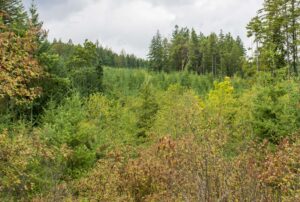 A law signed by Gov. Janet Mills last week
A law signed by Gov. Janet Mills last week  Of the two dozen people who showed up for a meeting to talk about a proposed biomass energy plant in Georgetown, five were from conservation groups. Another five were reporters.
Of the two dozen people who showed up for a meeting to talk about a proposed biomass energy plant in Georgetown, five were from conservation groups. Another five were reporters.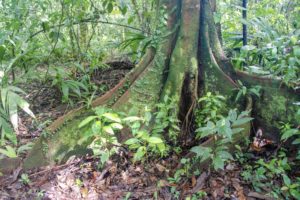 The Phillipines sits on a goldmine of forest and carbon wealth. But an unclear and short-sighted property rights regime is choking its potential; existing rules are partially to be blamed.
The Phillipines sits on a goldmine of forest and carbon wealth. But an unclear and short-sighted property rights regime is choking its potential; existing rules are partially to be blamed.  Hundreds of top environment lawyers are suing the New Zealand government over what they say is its “dangerously inadequate” plan to reduce emissions to net zero by 2050. It is the first time the country’s emissions reduction plan has faced litigation, and the lawyers believe it is the first case globally that challenges the use of forestry to offset emissions. …two groups representing more than 300 lawyers filed judicial review proceedings against the government in Wellington’s high court on Tuesday. The groups … claim … the government has abandoned dozens of tools to tackle emissions, failed to adequately consult the public, and too heavily relies on high-risk carbon capture strategies such as forestry. …They claim that the government is relying on “high risk” methods such as planting hundreds of thousands of hectares of introduced pine trees to offset emissions, and capturing carbon underground, with few alternatives to fall back on if something goes wrong.
Hundreds of top environment lawyers are suing the New Zealand government over what they say is its “dangerously inadequate” plan to reduce emissions to net zero by 2050. It is the first time the country’s emissions reduction plan has faced litigation, and the lawyers believe it is the first case globally that challenges the use of forestry to offset emissions. …two groups representing more than 300 lawyers filed judicial review proceedings against the government in Wellington’s high court on Tuesday. The groups … claim … the government has abandoned dozens of tools to tackle emissions, failed to adequately consult the public, and too heavily relies on high-risk carbon capture strategies such as forestry. …They claim that the government is relying on “high risk” methods such as planting hundreds of thousands of hectares of introduced pine trees to offset emissions, and capturing carbon underground, with few alternatives to fall back on if something goes wrong.
 Researchers from the University of Nottingham and CSIRO Australia have developed a pioneering combined milling and combustion performance model to improve the selection of low carbon fuels for power generation. Published in the
Researchers from the University of Nottingham and CSIRO Australia have developed a pioneering combined milling and combustion performance model to improve the selection of low carbon fuels for power generation. Published in the 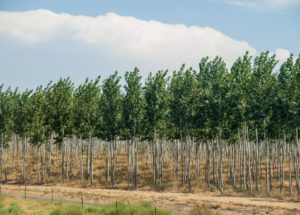 Rio Tinto has started growing pongamia trees in northern Australia, as part of a biofuels project aimed at reducing the mining giant’s reliance on fossil fuels. Pongamia trees are native to Australia and produce oil-rich seeds that can be processed into renewable diesel… Earlier this year, Rio Tinto trialled 10 million litres of renewable diesel — created from used cooking oil — across its Pilbara iron ore operations in Western Australia. The biofuel got used across the supply chain, featuring in Rio Tinto’s rail, marine, haul trucks, surface mining equipment and light vehicles… Forestry Industry Association of the Northern Territory (FIANT) manager Hanna Lillicrap said it was great to see a major mining company getting involved in the forestry sector. “It reflects a growing recognition of the role forestry can play as a climate-positive solution in emissions reduction strategies,” she said. “It’s great to see serious investment going into research to better understand the species and its potential,” she said.
Rio Tinto has started growing pongamia trees in northern Australia, as part of a biofuels project aimed at reducing the mining giant’s reliance on fossil fuels. Pongamia trees are native to Australia and produce oil-rich seeds that can be processed into renewable diesel… Earlier this year, Rio Tinto trialled 10 million litres of renewable diesel — created from used cooking oil — across its Pilbara iron ore operations in Western Australia. The biofuel got used across the supply chain, featuring in Rio Tinto’s rail, marine, haul trucks, surface mining equipment and light vehicles… Forestry Industry Association of the Northern Territory (FIANT) manager Hanna Lillicrap said it was great to see a major mining company getting involved in the forestry sector. “It reflects a growing recognition of the role forestry can play as a climate-positive solution in emissions reduction strategies,” she said. “It’s great to see serious investment going into research to better understand the species and its potential,” she said. Even if conversations are dominated by electrification, Toyota is working on a different course to keep combustion engines relevant. A recent Nikkei Asia report reveals that Japanese automakers led by Toyota have opened a bioethanol facility in Fukushima, aiming to slash the carbon footprint of conventional engines with a new kind of “better biofuel”. …What sets this project apart is its focus on second-generation biofuels: non-edible plants and agricultural waste serve as the feedstock, rather than food crops like corn or sugarcane. By avoiding feedstocks that compete with food supply, Toyota’s program addresses a key criticism of traditional biofuels. …The choice of Fukushima for the facility is symbolic. The site reuses land in an area devastated by the 2011 nuclear disaster, turning “disaster zones” into productive, green-energy facilities. In doing so, Toyota’s project ties regional recovery to climate innovation. …Feedstock: Uses non-food biomass (e.g. wood chips, rice straw, plant waste) instead of edible crops.
Even if conversations are dominated by electrification, Toyota is working on a different course to keep combustion engines relevant. A recent Nikkei Asia report reveals that Japanese automakers led by Toyota have opened a bioethanol facility in Fukushima, aiming to slash the carbon footprint of conventional engines with a new kind of “better biofuel”. …What sets this project apart is its focus on second-generation biofuels: non-edible plants and agricultural waste serve as the feedstock, rather than food crops like corn or sugarcane. By avoiding feedstocks that compete with food supply, Toyota’s program addresses a key criticism of traditional biofuels. …The choice of Fukushima for the facility is symbolic. The site reuses land in an area devastated by the 2011 nuclear disaster, turning “disaster zones” into productive, green-energy facilities. In doing so, Toyota’s project ties regional recovery to climate innovation. …Feedstock: Uses non-food biomass (e.g. wood chips, rice straw, plant waste) instead of edible crops.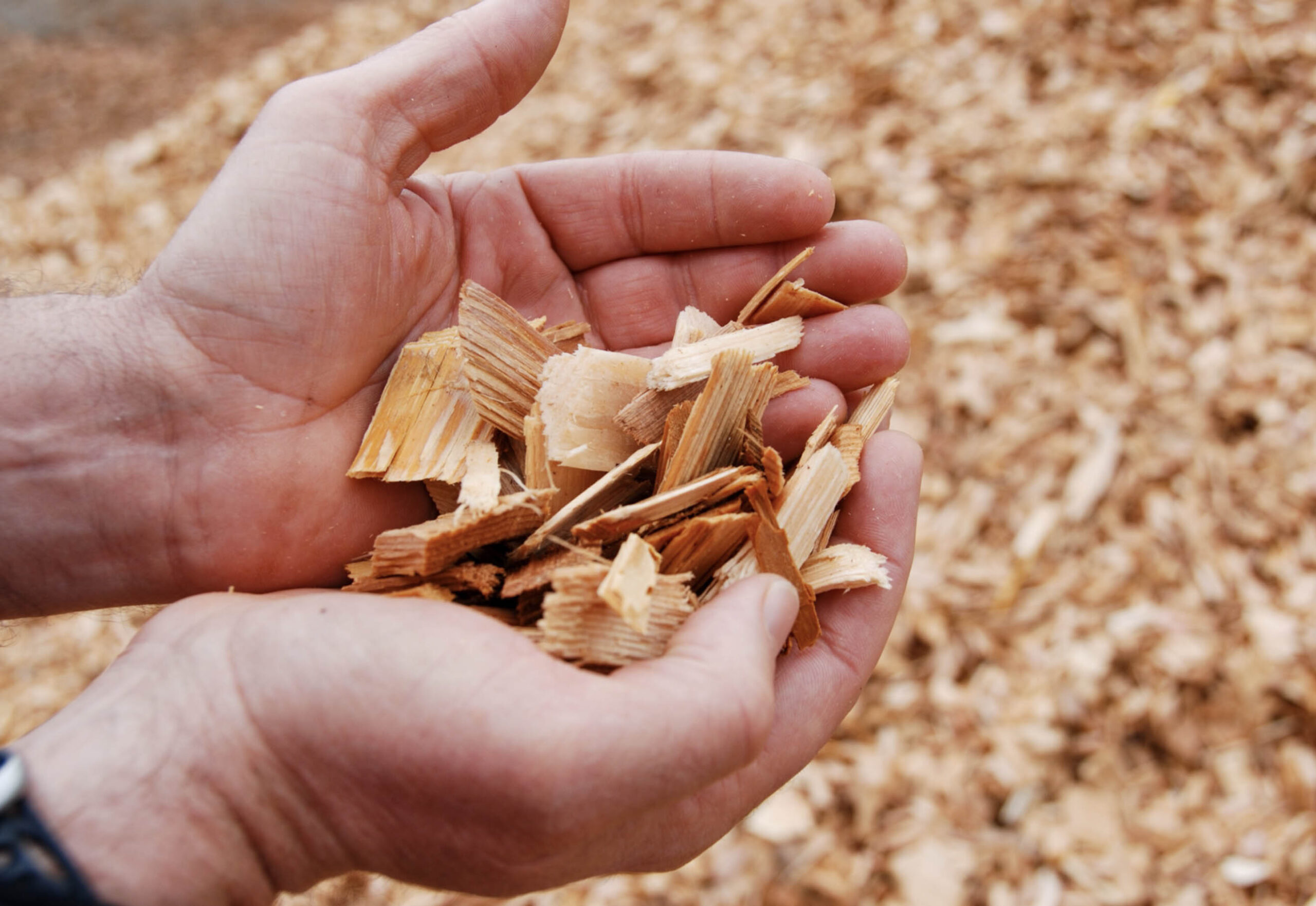
 Mineral water producer Gerolsteiner Brunnen has broken ground on a new biomass combined heat and power (CHP) plant at its site in the Vulkaneifel region, Germany, in partnership with energy provider E.ON. The plant is set to significantly reduce the company’s reliance on fossil fuels and further its long-standing commitment to climate protection. Once operational in early 2027, the plant will supply up to 95% of Gerolsteiner’s heat demand and around 20% of its electricity needs. It will run on regionally sourced biomass, including wood chips from damaged or diseased wood, forest residues, and green waste, that would otherwise go unused in traditional wood processing industries… The project is expected to reduce the company’s carbon emissions by over 7,000 tonnes annually.
Mineral water producer Gerolsteiner Brunnen has broken ground on a new biomass combined heat and power (CHP) plant at its site in the Vulkaneifel region, Germany, in partnership with energy provider E.ON. The plant is set to significantly reduce the company’s reliance on fossil fuels and further its long-standing commitment to climate protection. Once operational in early 2027, the plant will supply up to 95% of Gerolsteiner’s heat demand and around 20% of its electricity needs. It will run on regionally sourced biomass, including wood chips from damaged or diseased wood, forest residues, and green waste, that would otherwise go unused in traditional wood processing industries… The project is expected to reduce the company’s carbon emissions by over 7,000 tonnes annually.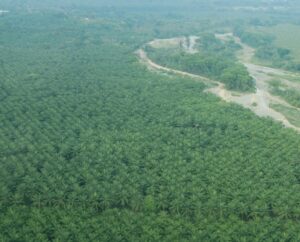 When I hear discussions about creating markets to “save nature,” a part of me is hopeful, but a bigger part is deeply cautious. Looking at how these market ideas have played out, like carbon markets, gives me pause. Forests, wetlands, and the natural world are not simple spreadsheets; treating them as such can lead us down a perilous path… Carbon, as CO2, is a global pollutant. A tonne reduced in one place has, theoretically, the same atmospheric impact as a tonne reduced elsewhere.This (imperfect) fungibility is what would allow a global carbon market to function. Biodiversity, however, is the epitome of diversity, local and unique. The specific mix of species, the genetic diversity and the intricate ecological relationships that define a patch of old-growth rainforest in the Amazon are utterly different from those in a Scottish pine forest or an Indonesian mangrove. You cannot swap one for the other and claim equivalence.
When I hear discussions about creating markets to “save nature,” a part of me is hopeful, but a bigger part is deeply cautious. Looking at how these market ideas have played out, like carbon markets, gives me pause. Forests, wetlands, and the natural world are not simple spreadsheets; treating them as such can lead us down a perilous path… Carbon, as CO2, is a global pollutant. A tonne reduced in one place has, theoretically, the same atmospheric impact as a tonne reduced elsewhere.This (imperfect) fungibility is what would allow a global carbon market to function. Biodiversity, however, is the epitome of diversity, local and unique. The specific mix of species, the genetic diversity and the intricate ecological relationships that define a patch of old-growth rainforest in the Amazon are utterly different from those in a Scottish pine forest or an Indonesian mangrove. You cannot swap one for the other and claim equivalence. The Amazon rainforest may be able to survive long-term drought caused by climate change, but adjusting to a drier, warmer world would exact a heavy toll, according to new research in which Cardiff University played a role. The findings show adapting to the effects of climate change could see some parts of the Amazon rainforest lose many of its largest trees, releasing carbon stored in them to the air, and reducing the rainforest’s carbon sink capacity. Parts of the Amazon are expected to become drier and warmer as the climate changes, but long-term effects on the region’s rainforests – which span more than 2 million square miles – are poorly understood. Previous research has raised concerns that a combination of severe warming and drying, together with deforestation, could lead to lush rainforest degrading to a sparser forest or even savanna.
The Amazon rainforest may be able to survive long-term drought caused by climate change, but adjusting to a drier, warmer world would exact a heavy toll, according to new research in which Cardiff University played a role. The findings show adapting to the effects of climate change could see some parts of the Amazon rainforest lose many of its largest trees, releasing carbon stored in them to the air, and reducing the rainforest’s carbon sink capacity. Parts of the Amazon are expected to become drier and warmer as the climate changes, but long-term effects on the region’s rainforests – which span more than 2 million square miles – are poorly understood. Previous research has raised concerns that a combination of severe warming and drying, together with deforestation, could lead to lush rainforest degrading to a sparser forest or even savanna.